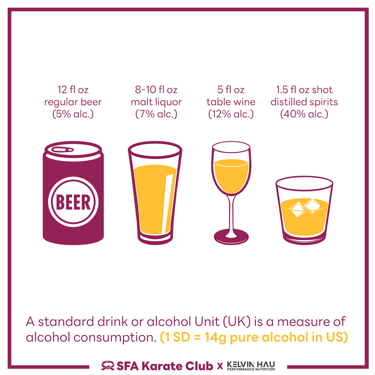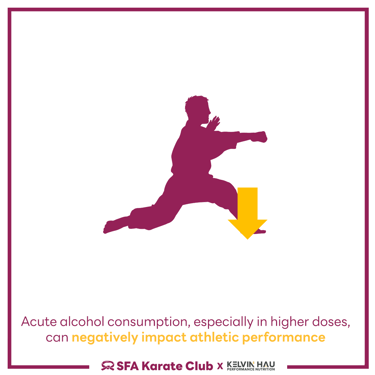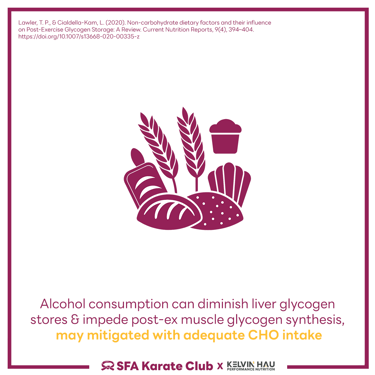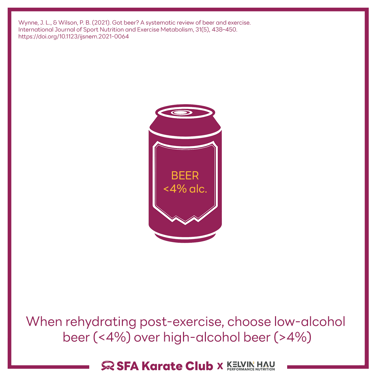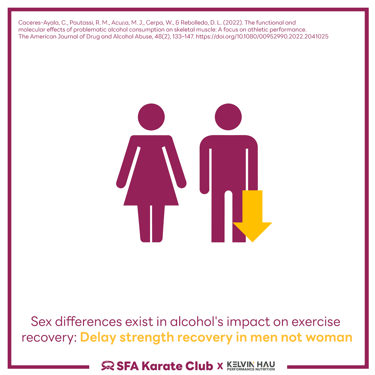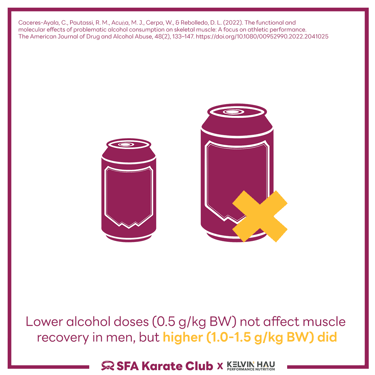[Sports Nutrition Lounge] Alcohol & Performance
SPORTS NUTRITIONSPORTS NUTRITION LOUNGE
5/3/2024
A standard drink or alcohol unit (in the UK) is a measure of alcohol consumption representing a fixed amount of pure alcohol (1 Standard drink contains 10g of pure alcohol).
Acute alcohol consumption, especially in higher doses, can negatively impact athletic performance which leads to compromised motor skills, decreased coordination, and impaired balance.
Both acute and chronic alcohol consumption can diminish liver glycogen stores and impede post-exercise muscle glycogen synthesis by disrupting glucose metabolism, yet this effect may be mitigated with adequate carbohydrate intake.
When rehydrating post-exercise, choose low-alcohol beer (<4%) over high-alcohol beer (>4%). If opting for a high-alcohol beer, pairing it with a nonalcoholic option can reduce diuresis, especially when consuming relatively large volumes of fluid (>700 ml).
Sex differences exist in alcohol's impact on exercise recovery. Alcohol consumption delays strength recovery in men particularly post muscle-damaging exercise.
Lower alcohol doses (0.5 g/kg BW) did not affect muscle recovery post-strenuous exercise in men, whereas higher doses (1.0-1.5 g/kg BW) have been shown to affect both peripheral muscle damage and central neural components, slowing the recovery of muscle strength, but shows less effect on women, even with high alcohol doses (0.8 g/kg BW).
Reference:
Caceres-Ayala, C., Pautassi, R. M., Acuña, M. J., Cerpa, W., & Rebolledo, D. L. (2022). The functional and molecular effects of problematic alcohol consumption on skeletal muscle: A focus on athletic performance. The American Journal of Drug and Alcohol Abuse, 48(2), 133–147. https://doi.org/10.1080/00952990.2022.2041025
Claire Siekaniec, M. (2017, June 1). The effects of alcohol on athletic performance. National Strength and Conditioning Association (NSCA). https://www.nsca.com/education/articles/nsca-coach/the-effects-of-alcohol-on-athletic-performance2
Lawler, T. P., & Cialdella-Kam, L. (2020). Non-carbohydrate dietary factors and their influence on Post-Exercise Glycogen Storage: A Review. Current Nutrition Reports, 9(4), 394–404. https://doi.org/10.1007/s13668-020-00335-z
Wynne, J. L., & Wilson, P. B. (2021). Got beer? A systematic review of beer and exercise. International Journal of Sport Nutrition and Exercise Metabolism, 31(5), 438–450. https://doi.org/10.1123/ijsnem.2021-0064
